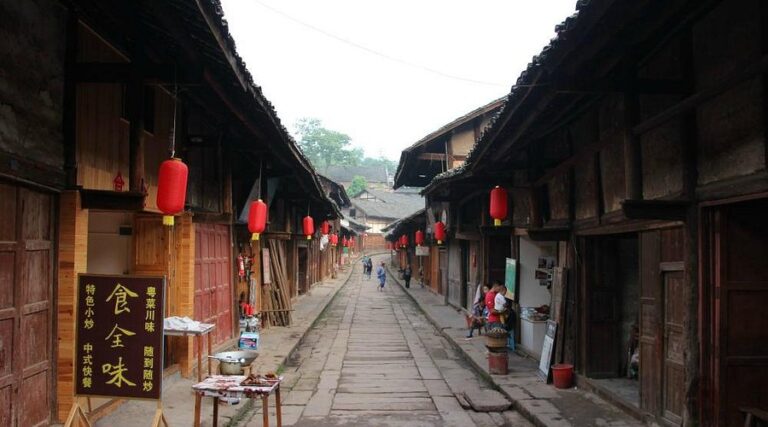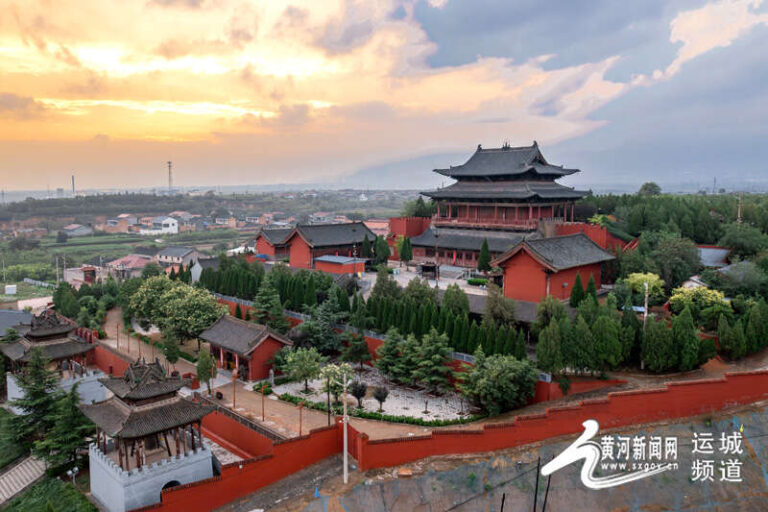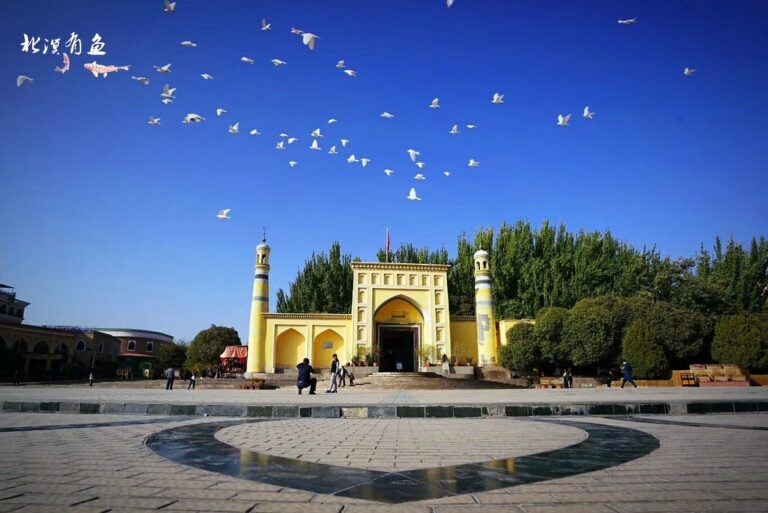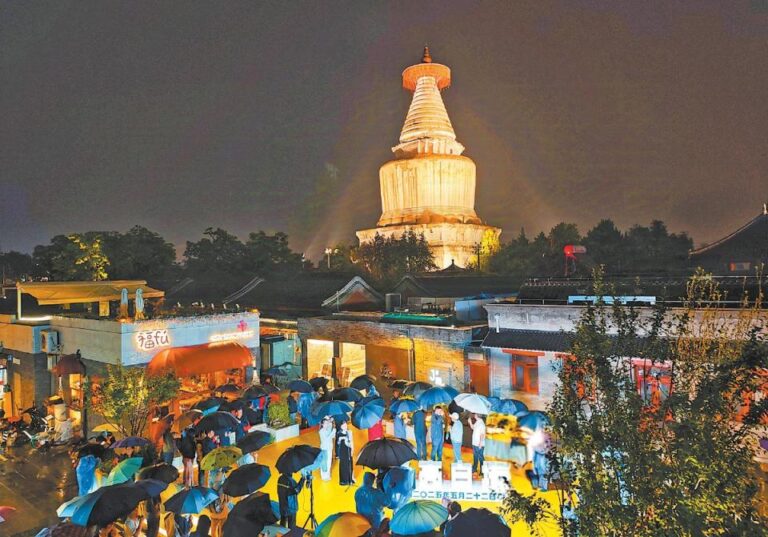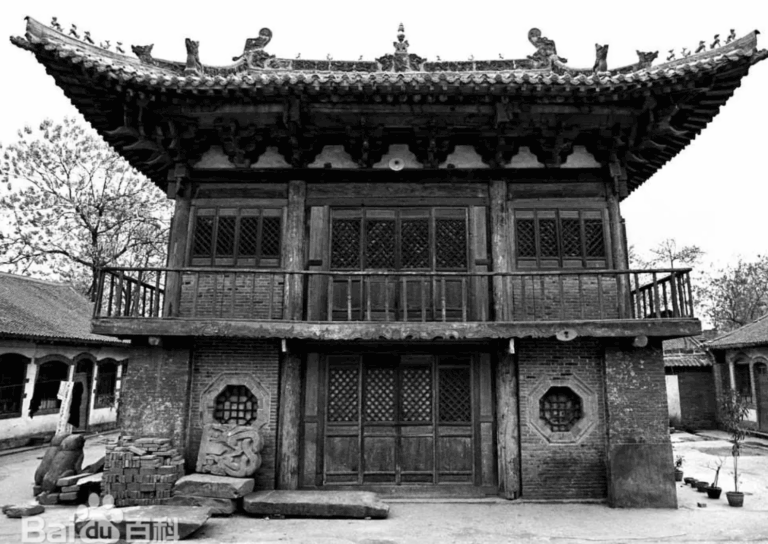Adventure Awaits at Hebi Yunmengshanmoya: Explore Nature’s Breathtaking Beauty
An Essential Guide to Visiting Hebi Yunmengshanmoya
In This Guide
- An Essential Guide to Visiting Hebi Yunmengshanmoya
- The Rich History of Hebi Yunmengshanmoya
- Main Highlights: What to See at Hebi Yunmengshanmoya
- Planning Your Visit: A Practical Guide
- Tickets, Hours, and Booking
- How to Get There
- Local Cuisine and Accommodation
- Frequently Asked Questions
- Final Thoughts on Your Trip
Nestled in the picturesque Taihang Mountains of Henan province, Hebi Yunmengshanmoya, also known as Yunmeng Mountain, emerges as a hidden gem that beckons adventurers and history enthusiasts alike. This majestic mountain, with its peak soaring to 584.5 meters, is often shrouded in a mystical mist, earning it the affectionate moniker “Cloud Dream Wonderland.” Spanning over ten square kilometers, the area is not just a feast for the eyes but also a treasure trove of cultural heritage.
Legend has it that this serene landscape served as a sanctuary for the ancient strategist Guiguzi, a figure revered for his wisdom during the Warring States period. The echoes of history can be felt throughout Yunmeng Mountain, where ancient inscriptions and relics narrate tales of legendary figures like Sun Bin and Pang Juan, who sought knowledge and enlightenment in this very locale. Visitors can immerse themselves in the rich tapestry of the past as they explore the various attractions, from the enchanting Water Curtain Cave to the intriguing Guiguzi Temple.
Beyond its historical significance, Yunmeng Mountain captivates with its breathtaking natural beauty. Lush greenery, cascading waterfalls, and unique geological formations create a stunning backdrop for a day of exploration or a leisurely hike. The region’s diverse ecosystems offer a delightful escape from the hustle and bustle of modern life, making it an ideal destination for those seeking tranquility and inspiration.
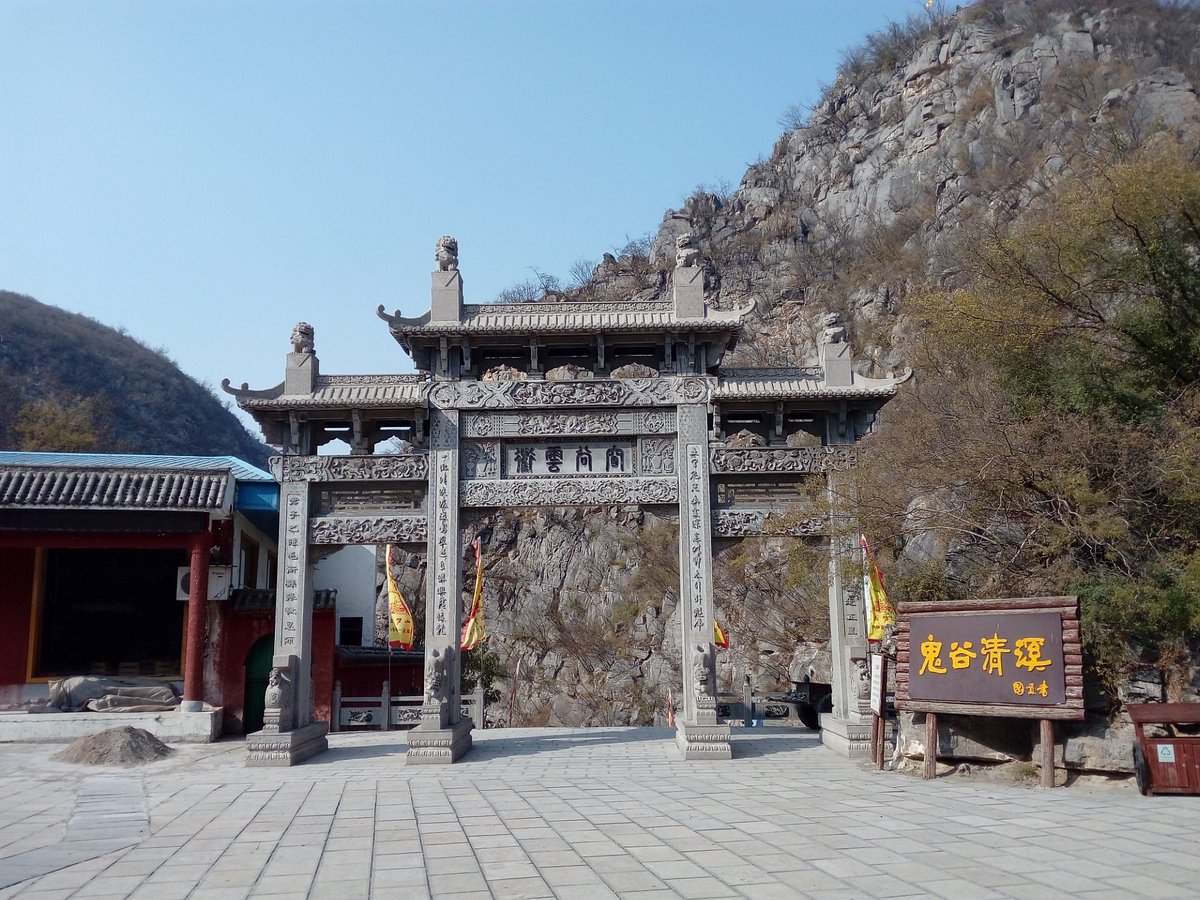
Hebi Yunmengshanmoya.
Whether you’re drawn by the allure of ancient wisdom, the call of nature, or a desire to experience a less-traveled path, Yunmeng Mountain promises an unforgettable journey filled with wonder and discovery. Prepare to be enchanted by this idyllic retreat, where every step unveils the mysteries of a bygone era amidst the splendor of nature.
The Rich History of Hebi Yunmengshanmoya
Hebi Yunmengshanmoya, also known as Yunmeng Mountain, is not just a scenic destination; it is a site steeped in history and cultural significance. Located in Qi County, Henan Province, at the eastern foothills of the Taihang Mountains, the mountain rises to an elevation of 584.5 meters. Its breathtaking landscapes, characterized by rugged peaks, cascading waterfalls, and lush greenery, have inspired poets, scholars, and seekers for centuries.
The mountain is famously associated with the legendary figure of Guiguzi (鬼谷子), a revered strategist and philosopher from the Warring States period. Guiguzi is said to have used this serene and mystical locale as a retreat to teach his disciples the art of strategy and statecraft. Historical texts document that prominent figures such as Sun Bin and Pang Juan, famous military strategists of their time, were among his students. The presence of these historical figures lends Yunmeng Mountain an air of mystique and prestige, as it was a hub of intellectual activity during a transformative period in Chinese history.
The mountain’s rich history is further highlighted by ancient inscriptions and stone carvings that adorn its cliffs. These inscriptions, created by poets and scholars over the centuries, reflect their admiration for the natural beauty of Yunmeng Mountain and its connection to Chinese culture and philosophy. Among these inscriptions is a notable record from the Ming Dynasty, which specifically mentions the Water Curtain Cave (水帘洞), a site where Guiguzi supposedly held discussions with his students. Such details illustrate the mountain’s long-standing significance as a site of learning and reflection.
In addition to its historical and cultural allure, Yunmeng Mountain has been recognized for its geological and ecological importance. The area features diverse flora and fauna, making it a beloved destination for nature lovers and environmentalists alike. The unique geological formations, including rare sinkholes and caves, are testaments to the region’s geological evolution and provide insights into the natural processes that have shaped the landscape over millennia.
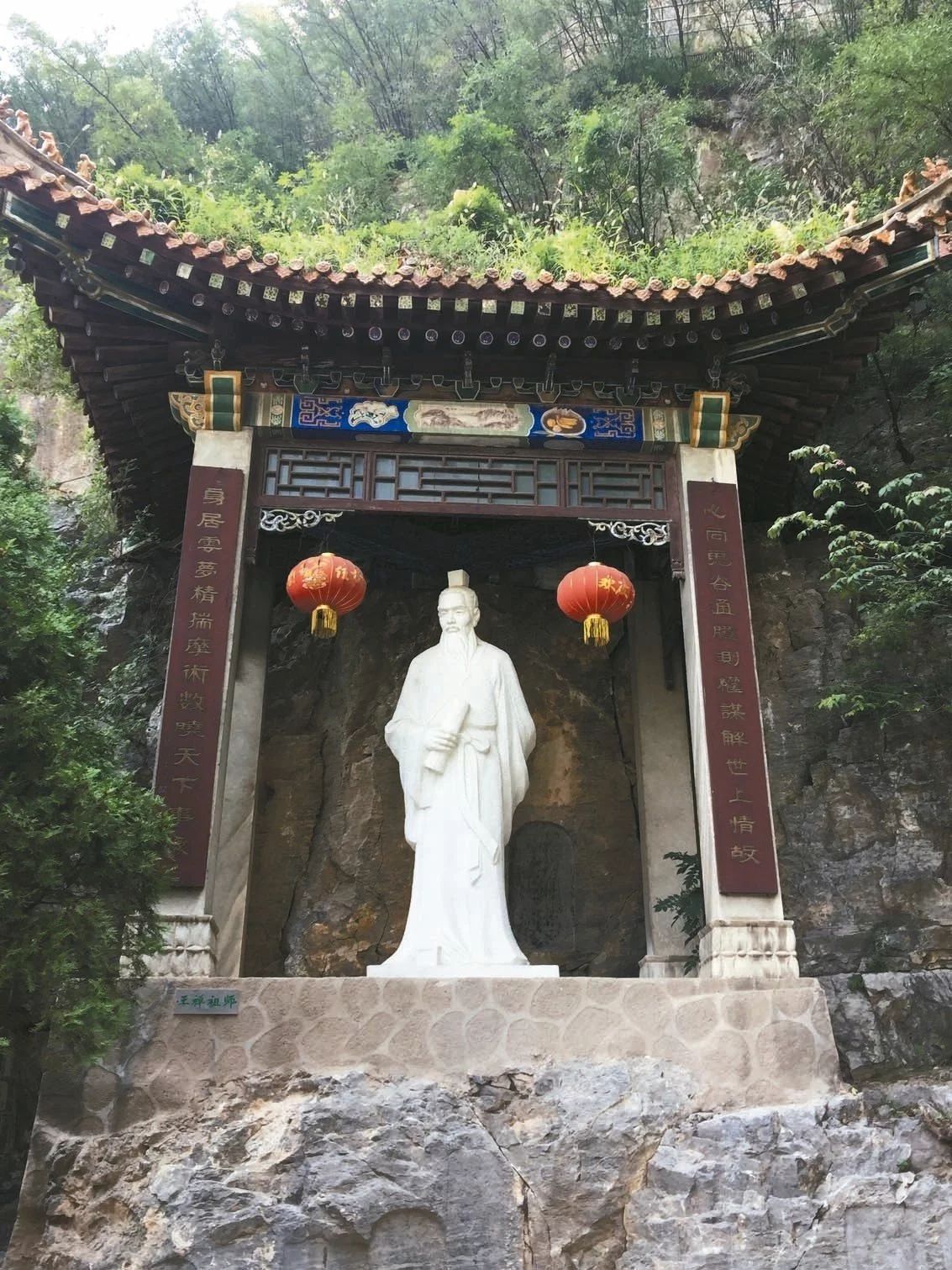
Hebi Yunmengshanmoya.
Today, Yunmeng Mountain is designated as a national AAAA scenic area, drawing visitors not only for its natural beauty but also for its historical heritage. Visitors can explore various sites within the area, such as the ancient military academy remnants, the Guiguzi Temple, and numerous scenic spots that celebrate both the natural and historical significance of this enchanting mountain.
In summary, Yunmeng Mountain is a remarkable confluence of nature, history, and culture. It serves as a reminder of China’s rich philosophical traditions and the enduring legacy of its historical figures, making it an essential destination for anyone seeking to appreciate the deeper stories behind China’s landscapes. Whether you are a history buff, a nature enthusiast, or simply looking for a serene escape, Yunmeng Mountain offers a unique journey through time and beauty.
Main Highlights: What to See at Hebi Yunmengshanmoya
Nestled in the picturesque landscapes of Qi County, Hebi Yunmengshanmoya, also known as Cloud Dream Mountain, presents a captivating blend of natural beauty and rich cultural history. Here are the must-see highlights that make this destination a true gem:
Breathtaking Natural Scenery
Cloud Dream Mountain rises majestically to an elevation of 584.5 meters, surrounded by cascading waterfalls, lush greenery, and dramatic rock formations. The area boasts over ten square kilometers of striking vistas, characterized by its misty peaks and serene valleys, making it a paradise for nature lovers and photographers alike.
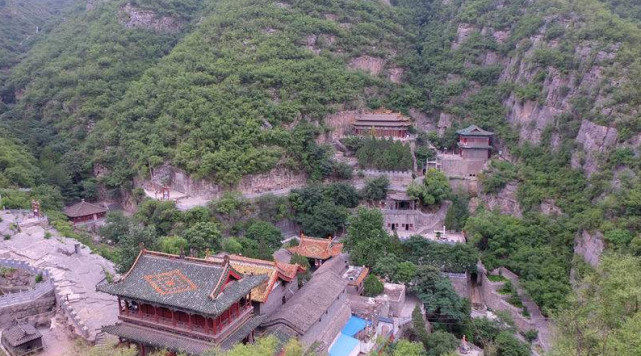
Hebi Yunmengshanmoya.
Historical and Cultural Significance
This area is steeped in history, famously associated with the legendary strategist Guiguzi (鬼谷子), who is believed to have taught famous military strategists like Sun Bin and Pang Juan in its tranquil surroundings. The inscriptions and stele scattered throughout the park pay homage to this rich cultural heritage, allowing visitors to connect with ancient wisdom.
Iconic Attractions
1. Southern Heaven Gate (南天门): Captivating visitors with its grand structure, this gateway offers stunning views and serves as a popular photo spot.
-
Bagua City (八卦城): A unique layout that embodies ancient architectural wisdom, perfect for leisurely strolls and photography.
-
Glass Viewing Platform: For the thrill-seekers, this record-holding glass bridge offers a breathtaking perspective of the mountains below, combining adventure with scenic beauty.
-
Guiguzi Statue: An impressive statue that stands as a tribute to the enigmatic figure, flanked by poetic couplets that reflect his philosophical teachings.
-
Dragon Spring Well (龙泉井): This ancient well is not only a vital water source but is also believed to have healing properties, adding a touch of mystique to your visit.
-
Military Museum: Explore the rich military history of the area, featuring exhibits that delve into ancient warfare and strategy, making it a fascinating stop for history enthusiasts.
-
Caves of Guiguzi: These caves, associated with Guiguzi’s teachings, offer a glimpse into the past and a chance to experience the serene atmosphere that once inspired great minds.
Adventure Awaits
For those who crave adventure, the hiking trails winding through the mountain offer various routes suitable for all skill levels. Whether you choose to explore the charming meadows or tackle the rocky paths, each step reveals new wonders.
Culinary Delights
Don’t miss the opportunity to savor local delicacies, such as the famed “Twisted Silk Duck Eggs” and fresh catch from the Qi River, providing a delicious taste of the region.
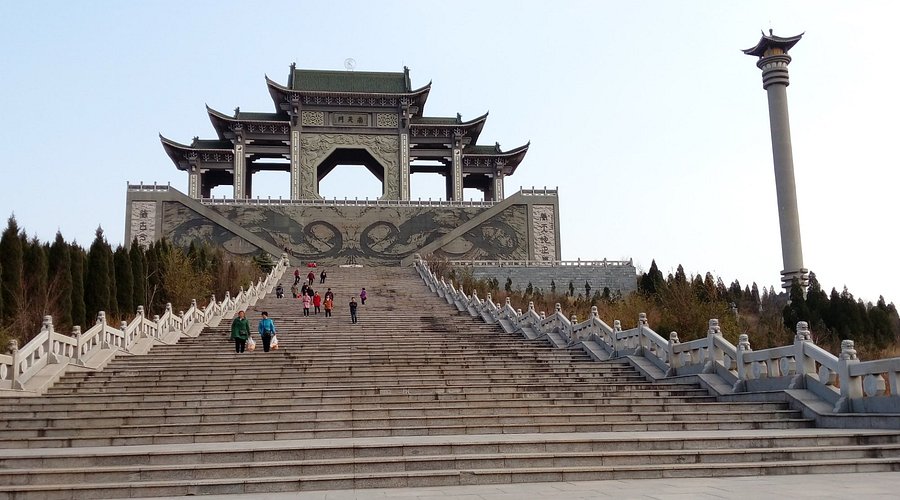
Hebi Yunmengshanmoya.
Best Time to Visit
The ideal seasons to explore Cloud Dream Mountain are spring and autumn, when the weather is pleasant, and the natural scenery is at its most vibrant, with blooming flowers in spring and stunning fall foliage.
With its awe-inspiring landscapes, deep-rooted history, and a plethora of activities, Cloud Dream Mountain is an unforgettable destination that promises to enrich your travel experience. Whether you seek adventure, tranquility, or a dive into ancient Chinese culture, this hidden gem has something for everyone.
Planning Your Visit: A Practical Guide
Practical Guide to Hebi Yunmengshanmoya (云梦山摩崖)
Nestled in the picturesque landscape of Hebi, Henan Province, the Hebi Yunmengshanmoya, also known as Yunmeng Mountain, offers a breathtaking escape into nature, steeped in rich history and cultural significance. Whether you’re a history buff, a nature lover, or an adventure seeker, this guide will help you make the most of your visit to this enchanting destination.
Getting There
Location:
Yunmeng Mountain is located approximately 15 kilometers west of Qi County in the Taihang Mountain range. The main peak rises to 584.5 meters, presenting stunning views and diverse landscapes.
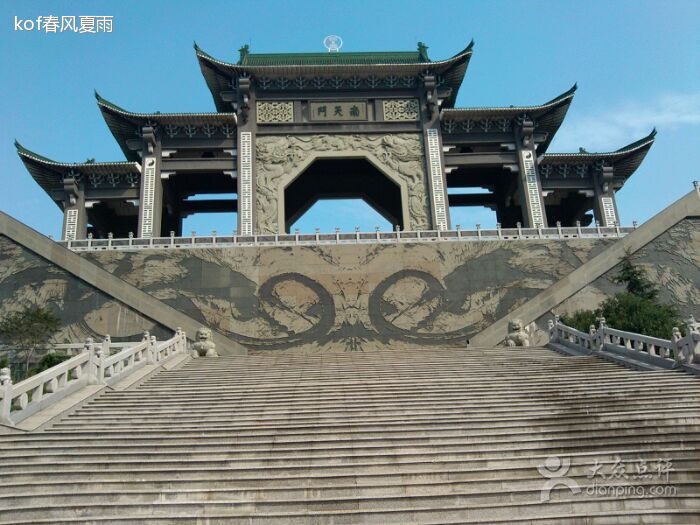
Hebi Yunmengshanmoya.
Transportation Options:
– By Car: If you’re driving, navigate to Yunmeng Mountain Scenic Area using a GPS for easy access. The journey provides scenic views of the surrounding countryside.
– Public Transport: From the Qi County urban area, take bus 106 to Haomen Shengshi, then transfer to bus 633, which goes directly to the Yunmeng Mountain ticket office. Note that bus 633 only allows boarding in the county.
Ticket Information
- Entrance Fee: ¥60 per person (approximately $9), with discounts available for local residents showing ID (¥40).
- Operating Hours: The scenic area is open daily from 8:00 AM to 5:00 PM.
Recommended Duration
Allocate 3 to 5 hours for your visit to fully enjoy the natural beauty, historical sites, and recreational activities the area offers.
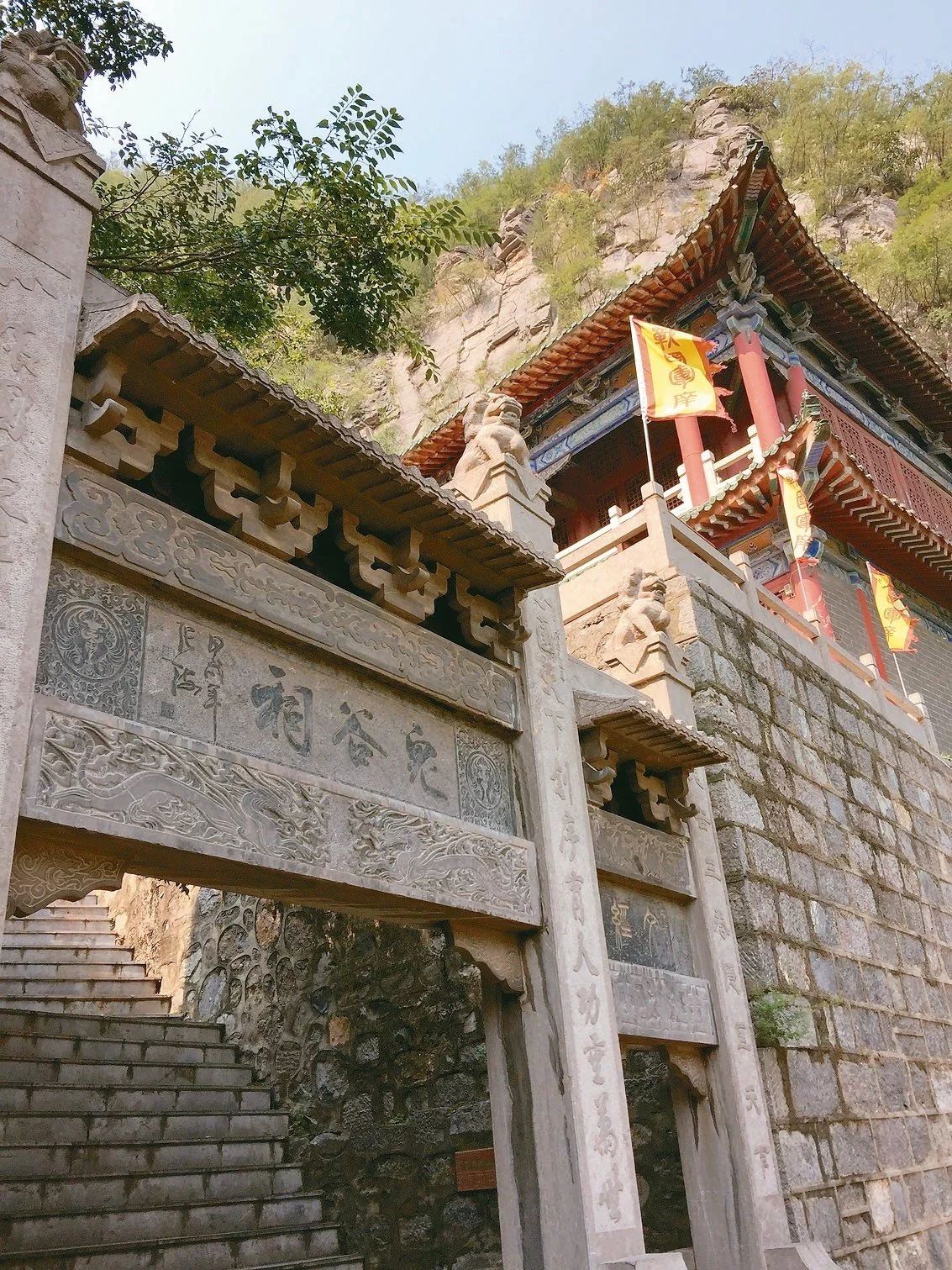
Hebi Yunmengshanmoya.
Key Attractions
-
South Gate (南天门): A stunning entrance to the scenic area, perfect for photography with its dramatic architectural features.
-
Bagua City (八卦城): An intriguing area that embodies mystery and ancient wisdom, great for exploration and capturing memorable photos.
-
Mongolian Cultural Park: Experience Mongolian culture with options to rent traditional costumes and engage in activities like horseback riding and archery.
-
Glass Viewing Platform: Experience breathtaking views from the skywalk that spans 80.09 meters, known for its impressive design and Instagram-worthy moments.
-
Guiguzi Statue (鬼谷子像): A tribute to the legendary figure, with inscriptions that reflect his profound wisdom and teachings.
-
Longquan Well (龙泉井): A unique natural spring that remains a vital water source; the water is mineral-rich and safe for drinking.
-
Military Museum: This site showcases ancient military artifacts and provides insights into the historical significance of the region.
-
Caves and Geological Wonders: Explore the unique geological formations, including the 天坑溶洞, which features stunning stalactites and a subterranean river.
Hiking and Outdoor Activities
For those who enjoy outdoor activities, consider hiking. The trails vary in difficulty, making it accessible for both casual walkers and seasoned hikers. Be sure to wear comfortable footwear and carry plenty of water.
Dining Options
Local cuisine is a highlight of any visit. Popular dishes include:
– Qihe Crucian Carp (淇河鯽鱼): Renowned for its delicate flavor, it’s a must-try dish.
– Twisted Silk Duck Eggs (缠丝鸭蛋): A local delicacy known for its unique appearance and rich taste.
– Cold Noodles (凉皮): A refreshing option, especially during warmer months.
Accommodation
While there are limited options within the scenic area, nearby Qi County offers various accommodations ranging from budget hotels to more upscale resorts. Consider staying in a local guesthouse for a more immersive experience.
Tips for Visitors
- Best Time to Visit: Spring (April-May) and autumn (September-October) are ideal for enjoying comfortable weather and vibrant natural scenery.
- What to Bring: Sunscreen, a hat for sun protection, comfortable walking shoes, and a water bottle.
- Photography: Don’t forget your camera! The landscape is a photographer’s dream, especially at sunrise or sunset.
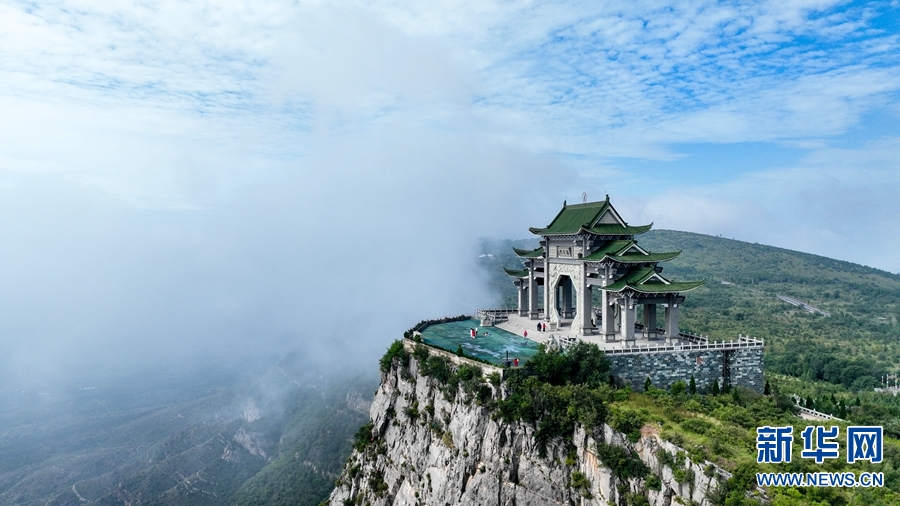
Hebi Yunmengshanmoya.
Conclusion
Yunmeng Mountain is more than just a scenic spot; it’s a place where history, culture, and nature intertwine. Whether you’re here for a day trip or a weekend getaway, the experiences you gather will surely resonate long after your visit. Embrace the tranquility, explore the depths of history, and enjoy the beauty that Yunmeng Mountain has to offer!
Tickets, Hours, and Booking
Visiting Hebi Yunmengshanmoya (云梦山摩崖) is an enchanting experience, and understanding the ticketing details will help you plan your trip effectively.
Ticket Information
- General Admission Price: The standard ticket price is 60 CNY (approximately 9 USD).
- Discounted Tickets: Residents of Hebi can purchase tickets for just 40 CNY by presenting a valid ID at the ticket window.
- Concessions: Additional discounts are available for specific groups:
- Students: Half-price tickets are offered to current students with valid student identification.
- Seniors: Visitors aged 60 and above can also enjoy half-price admission upon showing a valid ID.
- Emergency Services: Police officers and firefighters can enter for free with appropriate identification.
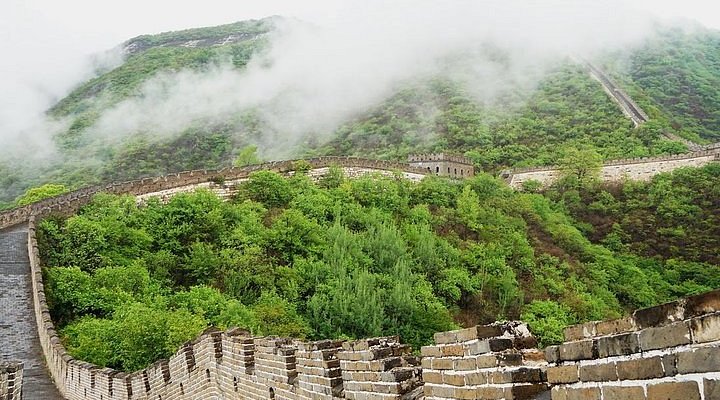
Hebi Yunmengshanmoya.
Opening Hours
The scenic area operates from 8:00 AM to 5:00 PM, allowing ample time to explore its natural beauty and historical sites.
Ticket Purchase
Tickets can be purchased on-site at the entrance or through various travel platforms that may offer promotional rates. It’s advisable to check for any seasonal discounts or special offers before your visit.
Recommended Visit Duration
Plan for 3 to 5 hours to fully appreciate the stunning landscapes and cultural landmarks scattered throughout the area. Enjoy your exploration of the mystique and beauty that Yunmengshan has to offer!
How to Get There
To reach Hebi Yunmengshanmoya (云梦山摩崖), a picturesque destination nestled in the Taihang Mountains of Henan Province, various transportation options cater to both domestic and international travelers. Here’s a comprehensive guide to help you navigate to this enchanting site.
Getting There
By Air
The nearest major airport is Zhengzhou Xinzheng International Airport (CGO), approximately 100 kilometers from Yunmeng Mountain. From the airport, you can either take a taxi or use a ride-hailing app for a direct transfer to your destination. The drive takes around 1.5 to 2 hours, depending on traffic.
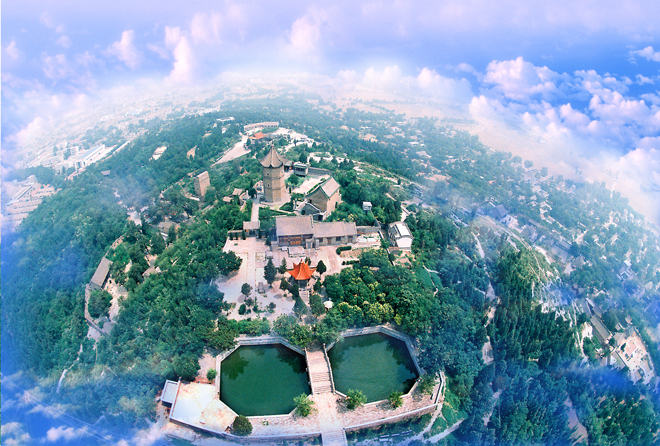
Hebi Yunmengshanmoya.
By Train
For those traveling by train, head to the newly constructed Hebi Dong Station (鹤壁东站), which is part of the Beijing-Guangzhou High-Speed Railway. This station serves as a significant transportation hub and connects to various major cities. From Hebi Dong Station, you can take a taxi or a local bus to reach Yunmeng Mountain, which is approximately 30 kilometers away.
By Bus
Buses are a convenient and economical way to reach Yunmeng Mountain. From downtown Hebi, visit the Hebi Bus Station and look for buses heading to Qi County (淇县) or directly to the Yunmeng Mountain Scenic Area. The bus fare is quite affordable, and services run frequently, ensuring a smooth journey to this scenic spot.
By Car
If you prefer the flexibility of driving, renting a car is a great option. The scenic drive from Zhengzhou or nearby cities to Yunmeng Mountain offers beautiful views of the countryside. You can easily navigate using GPS or navigation apps by entering “Yunmeng Mountain Scenic Area” (云梦山风景区) as your destination. The roads are well-maintained, and there are ample parking facilities available at the scenic area.
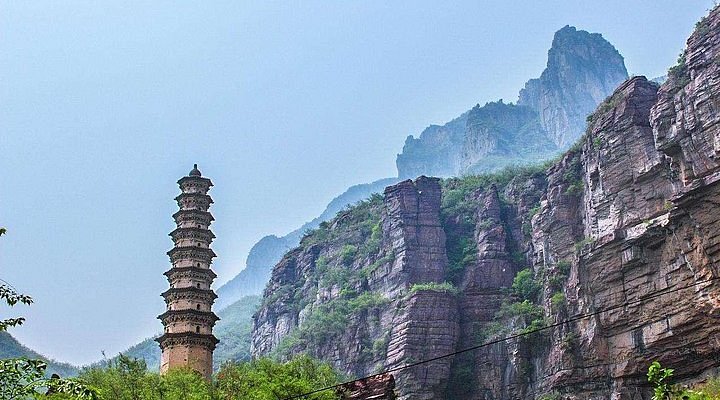
Hebi Yunmengshanmoya.
Local Transportation
Once you arrive at Yunmeng Mountain, the best way to explore the area is on foot, as the scenic spots are interconnected and can be easily reached by walking. However, for those who would prefer not to walk, electric shuttles are available to transport visitors between key points within the park, especially during peak seasons.
Tips for Travelers
- Plan Ahead: Check the bus and train schedules in advance, especially on weekends and holidays when demand may be higher.
- Language: While some transportation staff may understand basic English, it’s advisable to have your destination written in Chinese, or use translation apps to avoid any communication issues.
- Cash: Keep some cash handy, as not all transportation options may accept credit cards.
With a variety of ways to reach Yunmeng Mountain, you can easily plan your visit to this stunning destination, rich in natural beauty and cultural history. Whether you choose to fly, take a train, or drive, the journey to this scenic wonderland is sure to be an adventure in itself.
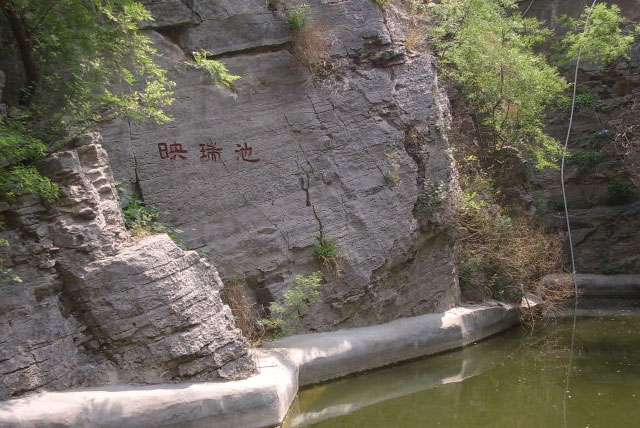
Hebi Yunmengshanmoya.
Local Cuisine and Accommodation
When visiting Hebi Yunmengshanmoya, you’ll find a delightful array of local cuisine and comfortable accommodations that enhance your experience in this scenic area.
Local Cuisine
The culinary scene around Yunmeng Mountain is a captivating blend of regional specialties that reflect the rich agricultural heritage of the area. Here are some must-try dishes:
-
Chuan Si Duck Eggs (纏絲鴨蛋): A local delicacy, these unique duck eggs feature a striking red-orange yolk surrounded by colorful patterns. They are known for their rich flavor and are often enjoyed boiled or as salted eggs.
-
Qihe Crucian Carp (淇河鯽魚): Fresh from the nearby waters, this fish is renowned for its tender meat and is commonly served steamed or in a nourishing soup. It’s a highlight on many dining tables in the region.
-
Cold Noodles (涼皮): Perfect for warmer days, this dish features slippery, chewy noodles topped with a tangy sauce, fresh vegetables, and sometimes peanuts for added crunch. It’s a refreshing choice after a day of exploring.
-
Wild Vegetable Buns (野菜包子): These steamed buns are filled with fresh, locally sourced wild greens. They offer a delightful taste of the natural bounty that surrounds Yunmeng Mountain.
-
Street Snacks: Don’t miss out on trying local street snacks like Zimo (子饃), a type of meat-stuffed flatbread cooked over hot stones, or Wangqiao Tofu (王橋豆腐), which is served cool with a flavorful dressing.
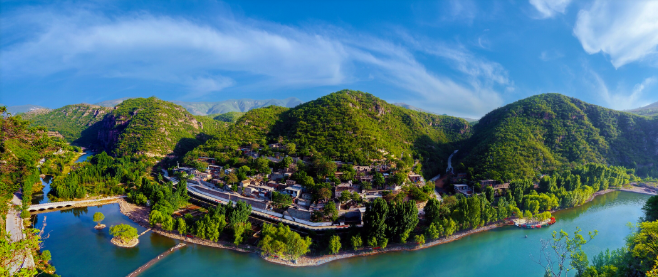
Hebi Yunmengshanmoya.
Dining Options
While exploring the area, you’ll find a variety of dining establishments catering to different tastes and budgets:
-
Wei Dao Ming Chef (味道名廚): Known for its authentic local dishes, this restaurant focuses on using fresh ingredients and traditional cooking methods.
-
Yawei Clay Pot Noodles (亞偉瓦罐面): A great spot for a hearty meal, offering a range of noodle dishes cooked in clay pots, ensuring rich flavors and warmth.
-
Classic Sichuan Hotpot (經典四川火鍋): For those who enjoy spicy food, this hotpot restaurant serves a variety of broths and fresh ingredients to cook at your table.
Accommodation
For a restful stay, the options near Yunmeng Mountain range from budget-friendly hotels to more luxurious accommodations:
-
Cloud Resort Hotel (雲端西頂): This upscale resort offers breathtaking views, an infinity pool, and comfortable rooms designed for relaxation after a day of adventures.
-
Qihe River Hotel (淇河賓館): A mid-range option that provides comfortable lodgings and is conveniently located near local attractions, making it easy to explore the area.
-
Lingquan Miao Jing Inn (靈泉妙境民宿): For a more authentic experience, consider staying at this inn, which features traditional architecture and is surrounded by natural scenery, allowing guests to immerse themselves in the tranquil environment.
-
Budget Choices: There are numerous guesthouses and budget hotels in the nearby towns, such as the Hanting Hotel or various family-run inns, which offer a warm atmosphere and local charm at affordable rates.
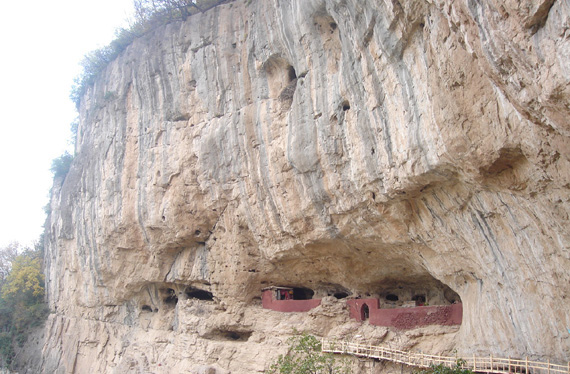
Hebi Yunmengshanmoya.
With a mix of flavorful dishes and comfortable accommodations, your visit to Yunmeng Mountain will surely be a memorable experience. Whether you’re indulging in local delicacies or resting in a cozy room, the region’s hospitality will make you feel right at home.
Frequently Asked Questions
-
What are the opening hours of Hebi Yunmengshanmoya?
The scenic area is open daily from 8:00 AM to 5:00 PM. It’s advisable to arrive early to make the most of your visit. -
How much is the entrance fee?
The standard entrance fee is 60 CNY. However, residents of Hebi can purchase tickets for 40 CNY with valid identification. Discounts are available for students and seniors. -
What is the best time to visit Yunmengshan?
The ideal times to visit are in spring (April to May) and autumn (September to October) when the weather is pleasant, and the scenery is at its most vibrant, featuring blooming flowers in spring and colorful foliage in autumn. -
How can I get to Yunmengshan from the nearest city?
If traveling by public transport, you can take bus route 106 to the Haomen Shengshi area, then switch to bus 633 directly to the scenic area’s ticket office. For those driving, simply use navigation to reach the site. -
What are the must-see attractions within the park?
Key attractions include the South Heaven Gate, the Eight Trigrams City, Glass Viewing Platform, and the ancient military school. Don’t miss the stunning views from the glass bridge and the historical sites associated with the legendary strategist, Guiguzi. -
How long should I plan to spend at the scenic area?
A visit typically takes about 3 to 5 hours, depending on your interests in hiking, exploring historical sites, and enjoying the natural scenery. -
Are there any dining options available in the scenic area?
Yes, there are several local food stalls and restaurants offering regional specialties. Make sure to try the local cold noodles and other traditional dishes for an authentic experience. -
Is the area suitable for hiking and outdoor activities?
Yes, Yunmengshan offers various hiking trails suitable for different skill levels. The terrain is generally manageable, but wearing comfortable hiking shoes is recommended for a pleasant experience.
Final Thoughts on Your Trip
Visiting Hebi Yunmengshanmoya is more than just a trip; it’s a journey through time and nature that captivates the heart and soul. Nestled in the picturesque landscapes of the Taihang Mountains, this enchanting destination offers a unique blend of stunning natural beauty and rich historical significance. As you traverse its winding paths, each step reveals breathtaking vistas, cascading waterfalls, and the whispers of ancient legends.
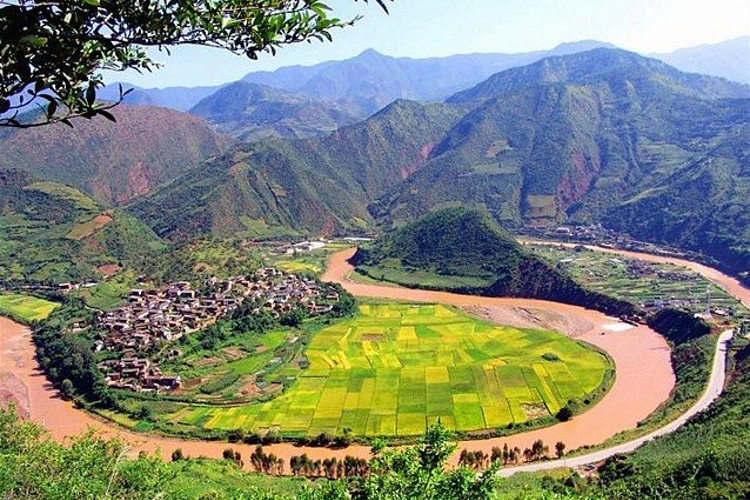
Hebi Yunmengshanmoya.
The mountain stands as a testament to the wisdom of historical figures such as Guiguzi, whose teachings echo through the ages within its serene valleys and hidden caves. Whether you’re seeking adventure through hiking, meditating in the tranquility of nature, or delving into the rich folklore of the region, Yunmengshan caters to every traveler’s desire.
With accessible transportation, affordable entry fees, and a welcoming local culture, it invites you to explore its wonders at your own pace. Embrace the allure of the landscapes, engage with the captivating stories, and let the spirit of Yunmengshan inspire you. This hidden gem in Henan Province awaits, ready to transform your travel experience into an unforgettable adventure. So pack your bags, lace up your hiking boots, and set forth on a journey that promises to fill your heart with joy and your mind with peace.
